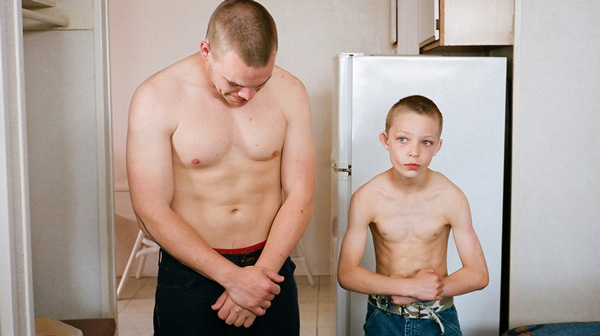
BY SEAN EGAN | The title of writer/director Andrew T. Betzer’s debut feature, “Young Bodies Heal Quickly” is a minor puzzle. That evocative, mildly cryptic phrase somehow seems fitting, despite the fact that its meaning is never made entirely clear.
It’s the first indication of something that becomes increasingly obvious as the movie plays out: Betzer is not one to dispense meanings or morals. His film isn’t the kind that deals with niceties like conventional narrative structure, dialogue or character names. It’s an uncompromising, inscrutable movie that, for better or for worse, stays true to its highly unusual, distinctive vision.
The plot, as it were, concerns two nameless brothers — one an adult (listed simply as “Older” in the end titles) and one a preteen (similarly credited as “Younger”).
FILM
YOUNG BODIES HEAL QUICKLY
Written & Directed by Andrew T. Betzer
Runtime: 102 minutes
Opens February 27
At Anthology Film Archives
32 Second Ave. (at Second St.)
Info: 212-505-5181
or anthologyfilmarchives.org
After an opening sequence in which some aimless destruction culminates in the accidental death of a young woman at the hands of the siblings, the film follows its leads as they go on the lam. The episodic tale that follows finds the two encountering a series of oddball characters: first their un-amused sister and her carpenter husband, then a French maid, and finally their gruff, estranged father — an Australian groundskeeper obsessed with war.
The decidedly informal narrative is rendered even looser by the decision to have it play out with minimal dialogue. Thankfully, in Gabriel Croft (Older) and Hale Lytle (Younger) are capable of turning in performances that anchor the proceedings. While they don’t share much in the way of conversation, they expertly allow their body language play off one another and communicate the essence of their relationship — the hulking Older is all intense physicality and incessant beer swigging, while spindly Younger possesses wide eyes and observant facial expressions. Croft and Lytle let the physical tics of the characters speak volumes, and create acutely realistic characters — the two brothers simply are.
The problem is, Betzer also lets “Young Bodies Heal Quickly” simply be. That is to say, the lyrical aura derived from the movie’s intentional lack of structure frequently veers over to the wrong side of indulgent aimlessness. This causes the pacing to suffer, and makes the film’s 100-or-so minutes feel far longer than they actually are — though admittedly, one’s mileage may vary when it comes to a feature as out-there as this one.
Mileage may also vary when it comes to its strange tone. “Young Bodies” can be quite sobering, sometimes moving into genuinely disturbing places — particularly in a sequence where Younger’s father pushes him to model some highly offensive war memorabilia. However, it also features a prominent comic streak, the effect of which makes the whole film feel uneasy. The longest verbal exchange, for instance, is a hysterical but narratively inconsequential deadpan argument between Older and his father (about crabs’ swimming abilities). And an attack by a meat cleaver-wielding chef (shouting about semen in French, naturally) is borderline surrealistic, more blackly comic than terrifying — though Betzer never explicitly encourages laughs.
It seems then that Betzer and the movie love living in gray areas — and to its credit, this often pays dividends. This is most obvious in the intense final act, where the line between real and feigned violence becomes blurred, and the distinction between acts of caring selflessness and insidiousness is played with intriguingly. The film also probes at questions about masculinity, justice and the consequences of actions, though the way in which Betzer refuses to answer any of these questions (as well as obscuring causality and characters’ motivations) is both refreshing and frustratingly confounding.
Nonetheless, the movie is never less than original — and if the narrative falters, it always looks amazing, thanks to Sean Price Williams’ cinematography. Shooting on gorgeous, grainy 16mm, and highlighting the everyday sprawl of rural America with his roaming camera, Williams gives the film a striking visual palette that makes it feel like a work out-of-time.
Ultimately “Young Bodies Heal Quickly” is easier to admire than to love, and more likely candidate for appreciation rather than enjoyment. Hopefully it is just the opening salvo of a talented young director who will continue to sharpen his narrative and structural skills — without sacrificing his tenacity and clearness of vision.




























